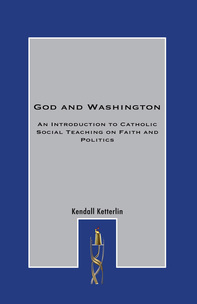|
* To order multiple copies (5 or more) or for inquiries, please EMAIL me directly.
|
COPIES NOW AVAILABLE
|
Introduction:
|
Question/ CommentMost Recent PostTO VOTE . . . OR NOT TO VOTE
EntriesINTRODUCTION
Should faith and politics even mix? VISION OF THE CHURCH What role does the Church serve? The vision of Bishops and Popes. THE PURPOSE OF GOVERNMENT
What is the Purpose and Role of Government? The Common Good Gifts for Governing For the People RESPONSIBILITY OF THE PERSON What is the Responsibility of the Person Morally Obligated VIRTUE DRIVEN CITIZENSHIP Prudence and Temperance Fortitude and Justice VALUES IN POLITICS ON POLITICAL PARTIES CANDIDATES AND ISSUES Issues Central to the Common Good TO VOTE . . . OR NOT TO VOTE 
Kendall Ketterlin
is a Roman Catholic, preparing for ordination to the Priesthood. In the years since his work with Hurricane Katrina, he has spent five years in religious life, first with the Missionaries of the Precious Blood and then the Order of Carmelites. He has continued writing in the areas of both social justice and spirituality, publishing an introduction to Catholic teaching regarding the relationship between faith and politics, God and Washington. More recently, he has focused his efforts on re-publishing out of print spiritual masterpieces, bringing these hard to find works into modern print and electronic media. His current writing project is a commentary on the Carmelite Rule, interpreting the wisdom of this quintessential way of life into a contemporary context and adapting its teachings for families, diocesan priests and others living outside the vowed life of the Carmelite Order. |


